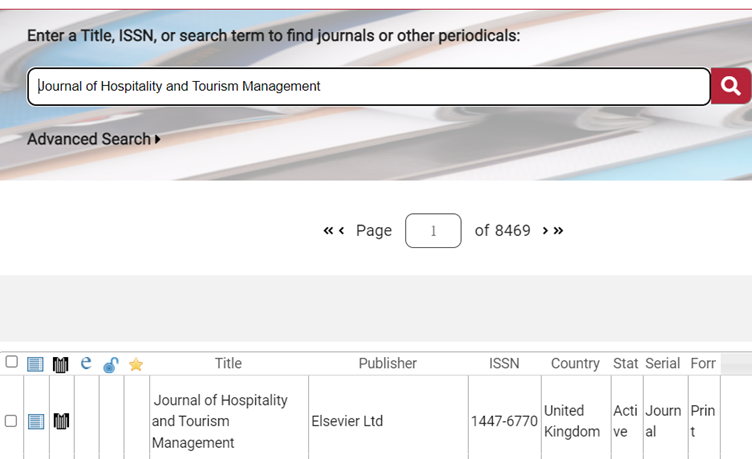What is peer-reviewed?
BACKWatch this short video for a brief overview of the subject.
Alternatively, have a look at the below presentation or read the full article.
What is peer-reviewed? by Library Glion
Overview
You have no doubt seen the mention of “peer reviewed” academic articles in your project outlines and heard your faculty requiring you to base your research on “peer reviewed” articles. But what exactly does the term “peer reviewed” mean? How does using “peer reviewed” articles improve the quality of your work? How can you tell if an article is peer reviewed or not? How can you use the library databases to find “peer reviewed” articles?
What does “peer reviewed” mean?
A simple definition would be “read thoroughly and checked by fellow experts”. The peer review process guarantees the validity, reliability, and credibility of the article.
In practice, before an article is published in an academic journal, it is sent to a panel of experts in the same field or discipline. These experts read the article carefully, checking for weaknesses or gaps in the arguments, research methodology or results and discussion. The experts also consider whether the article is contributing something new to the field of knowledge and not just repeating information already known. They give feedback to the authors of the article suggesting improvements or changes. The authors improve their article according to the feedback and then resubmit the article for publication. The article is peer reviewed again. If it now reaches the required standard, it will be published. If not, it will be rejected and will not appear in the journal. The peer review process usually takes several months.
How do academic articles improve the quality of your work?
Since the academic journal guarantees the validity, reliability, and credibility of the information it publishes, you can be sure that when you base your work on peer reviewed articles you are using the most authoritative sources. This in turn gives your work an air of authority and credibility. The very fact of citing the work of experts demonstrates the seriousness of your own work.
How can you tell if an academic journal article is peer reviewed or not?
Most, but not all, academic journals use the peer review process to check the quality of articles before publication. There are several ways to check if the article you are interested in has been peer reviewed. One way is to go to the home page of the journal, where you will usually find information about the journal’s peer review process. Here is an example from the Journal of Hospitality and Tourism Management (select “Guide for authors”)
Peer review
This journal operates a double anonymized review process. All contributions will be initially assessed by the editor for suitability for the journal. Papers deemed suitable are then typically sent to a minimum of two independent expert reviewers to assess the scientific quality of the paper.
If you cannot find this type of statement, then you should begin to have doubts about whether the articles in the journal are peer reviewed or not.
Another way to check if an academic journal uses the peer review process is to visit Ulrichsweb Global Serial Directories. Enter the name of the journal in the search bar and you will see if it is peer reviewed. This is the example for Journal of Hospitality and Tourism Management

How to find out the ranking of an academic journal

How can you use the library databases to find “peer reviewed” articles?
When you access the main search bar on the library database, make sure you check the “peer reviewed” box on the left-hand side:

For further information
Please consult the library produced document How to identify reliable sources?
